TUCSON CACTUS AND SUCCULENT SOCIETY |
2023 - Monthly Meetings archive
November 2, 2023 Meeting Announcement
November 2, 2023 7:00 pm |
Crevice gardens have historically been an esoteric, European garden style with a strange name, but recent developments have catapulted them onto the international stage and into major public gardens and back yards, especially in the USA. By virtue of growing plants closely with rocks, the opportunity arises to grow certain exotic and native plants better than they can be in a traditional garden. Remarkably, a crevice garden works to shed water in a wet climate but can also store water in a dry climate, making it a universally useful system, also dealing with awkward garden spaces or making plantable alternatives to retaining walls or a naturalistic way to elevate and display cactus and succulent collections. Kenton J. Seth is a thirty-something Colorado-based garden designer and hopeless plant slut, working with rock gardens, natives, dryland gardens, and meadows. He has a small nursery to grow plants for his designs, which range from around Western Colorado to the US Coasts and even a few overseas. He co-authored “The Crevice Garden,” and is working on a book about gardening without irrigation.. He writes a blog at kentonjseth.blogspot.com and his work is at PaintbrushGardens.com We are always thinking of your safety and if you are not feeling well we ask that you join us on the internet Zoom presentation. If you're doing well and would like to attend you are perfectly welcome to come and join us for this really special in person presentation (masks will be encouraged but not required). This meeting will also be a Zoom program and will be an important educational and informational event you must see. Also, if using Zoom, be sure to log in to win a $25.00 gift certificate from TCSS or choose a copy of the new 3rd edition of the Field Guide to Cacti & Other Succulents of Arizona. Excellent plant give aways will take place at the in person meeting but that portion of the program, because of the recording, will not appear on Zoom. When leaving the live in person meeting, please enjoy great refreshments provided by our member volunteers and also, everyone can get a special free plant offered to you by the TCSS. |
October 5, 2023 7:00 pm |
Peter started studying cacti in habitat more than 30 years ago and decided to get a Ph.D. in cactus evolution and biogeography at age 52, focused on the Mammillaria and Cochemiea of Baja California. He finished his Ph.D. at 58, at Arizona State University. He has published widely on topics in cactus evolution and ecology, including being one of the authors of The Field Guide to Cacti and Succulents of Arizona, published by the Tucson Cactus and Succulent Society. He is currently conducting the sixth installment since 1964 of the long-term saguaro survey on Tumamoc Hill in Tucson, Arizona, as a postdoctoral research fellow at The Desert Lab at The University of Arizona. He is also the managing editor for CSSA publications, and edits both the Cactus and Succulent Journal and the annual peer-reviewed yearbook, Haseltonia. | Cochemiea blossfeldiana subsp. rectispina in flower on Isla Cedros Ferocactus chrysacanthus in flower |
Cochemiea maritima flowering in December at the type locality. | Dudleya pachyphytum | Ferocactus fordii flowering in July near |
We are always thinking of your safety and if you are not feeling well we ask that you join us on the internet Zoom presentation. If you're doing well and would like to attend you are perfectly welcome to come and join us for this really special in person presentation (masks will be encouraged but not required). This meeting will also be a Zoom program and will be an important educational and informational event you must see. Also, if using Zoom, be sure to log in to win a $25.00 gift certificate from TCSS or choose a copy of the new 3rd edition of the Field Guide to Cacti & Other Succulents of Arizona. Excellent plant give aways will take place at the in person meeting but that portion of the program, because of the recording, will not appear on Zoom. When leaving the live in person meeting, please enjoy great refreshments provided by our member volunteers and also, everyone can get a special free plant offered to you by the TCSS. |
September 7, 2023 7:00 pm | Miss It? |
Dan Mahr grew up in southern California, a fifth-generation San Diegan. Influenced by frequent family camping trips to the ocean and desert he developed an interest in the natural world at an early age. He had an outdoor cactus garden by the age of 11 and has been growing cacti other succulents continuously since – about 65 years. He and his wife Susan are both entomologists and lived in Wisconsin for 40 years, on the faculty of the University of Wisconsin – Madison. They have now returned to southern California and are living in the home where Susan’s family resided when she was in high school. The property suffered neglect for many years and the two have been revitalizing the yard, planting over 700 plants – mostly succulents, natives, and other drought-tolerant species. Dan has been a member of the Cactus and Succulent Society of America for nearly 50 years and was on the Board of Directors for 15 years, serving as CSSA president in 2005-2006. Dan founded the CSSA Fields Trips Program in 1998 and served as its director for 20 years, organizing field trips for CSSA members to cactus and succulent habitats throughout the world. He has personally seen succulents growing in their native habitats in 25 countries in Europe, Africa, Latin America, Australia, and various island countries. Dan has been an invited speaker for several local cactus and succulent societies and at numerous cactus and succulent conferences in the United States and abroad. He has given dozens of talks and workshops on growing cactus and succulents to various garden groups throughout the Midwest. His personal interest in succulents has varied through the years; currently he has a mixed assortment of cacti and other succulent plant families, but specializes in succulent trees and hybrid adeniums. Memorable Places and the Succulents that Live There. This is a talk about memories. Specifically – travel memories. But with some plants thrown in. For folks who might be interested in such. |
Echinopsis atacamensis ssp. pasacana, in Salta Province of northwestern Argentina, at 9100 ft elevation. | Those of us who like to travel to natural areas have lived at a pretty good time. Travel is relatively easy and there are enough natural areas still existing to make the effort worthwhile (though that is quickly changing.) Many cactus and succulent enthusiasts have made opportunities to see our plants in their natural habitats. And even if the destinations are fairly close at hand, such as the American Southwest or adjacent Mexico, there is plenty to see, lots to learn, and experiences that build memories. Many of the trips Susan and I have taken have not been succulent-centric, but the plants are often there anyway - sempervivums in the Swiss Alps; sedums on the French Riviera; epiphyllums in the amazon Rainforest. And even on succulent-intense trips, some of the most lasting memories are of other things - other types of plants, or animals, geology, people, architecture, history, cuisine. This talk recalls a few of the memorable places I've been lucky enough to visit. In come cases, the succulents may be rather inconsequential - but they were there. In other cases, it was certainly the plants and their surroundings that have firmly fixed the memories in place. As I advance into my late 70's, there probably aren't many exotic destinations in my future; so, thank goodness for the memories! As time allows, the talk will visit four locations in southern Africa and three more in South America. The hope that my memories will allow you to come away with a greater understanding of our very special plants, and the places they call home. |
Corryocactus brevistylus at Colca Canyon, the second deepest canyon in the Peruvian Andes, in the Arequipa Region of southwestern Peru,
| The western-most species of Adenium, A. boehmianum, at Epupa Falls, Kunene Region, northwestern Namibia, on the Angola border, at 21000 ft elevation. The blue palms in the background are the Makalani palm - Hyphaene petersiana.
|
We are always thinking of your safety and if you are not feeling well we ask that you join us on the internet Zoom presentation. If you're well and would like to attend you are perfectly welcome to come and join us for this really special in-person presentation (masks will be encouraged but not required). This meeting will also be a Zoom program and will be an important educational and informational event you must see. Also, if using Zoom, be sure to log in to win a $25.00 gift certificate from TCSS or choose a copy of the new 3rd edition of the field Guide to Cacti & Other Succulents of Arizona. Excellent plant give aways will take place at the in-person meeting but that portion of the program, because of the recording, will not appear on Zoom. When leaving the live in-person meeting, please enjoy great refreshments provided by our member volunteers and also, everyone can get a free plant offered to you by the TCSS. |
August 3, 2023 7:00 pm | Miss It? |
Stefan is an Australian naturalist and environmental consultant living in Chile. He has an academic background in Applied Sciences and developed a fascination for cacti and other exotic plants from a young age. Stefan now facilitates habitat tours in South America, works in conservation and independently researches cacti and desert ecology. Bolivia is a landlocked country situated in the heart of South America. This fascinating place is located directly in the "elbow of the Andes" and is a biological paradise with a diversity of microclimates spanning across a relatively small geographical area, encompassing everything from tropical lowlands to the Altiplano. In this presentation, we discuss why these microclimates exist and what fascinating cacti and other exotic plants grow there. This will be a very special meeting by Stefan Burger, and a program on Bolivian cacti, that has never as yet been presented in Tucson. For those interested in excellent presentation, be sure to attend this meeting! |
This will also be a Zoom program and will be an important educational and informational event you must see. Also, if using Zoom, be sure to log in to win a $25 gift certificate for TCSS or choose a copy of the new 3rd edition of the Field Guide to Cacti & Other Succulents of Arizona. Excellent plant give aways will take place at the in-person meeting but that portion of the program, because of the recording, will not appear on Zoom. When leaving the live in-person meeting, please enjoy great refreshments provided by our member volunteers and also, everyone can get a special free plant offered to you by the TCSS. Also, please always thank Robert and Donna Ellis for selecting and arranging all the raffle plants, door prize plants and free plant giveaways. TCSS Meeting Refreshments Please share and socialize with your fellow members at our monthly meetings by taking a turn in bringing some type of finger food for the refreshment table. |
|
July 6, 2023 7:00 pm | Miss It? |
"Cacti are one of the most endangered groups of organisms on the planet, besieged by poaching, habitat destruction, and climate change. Properly conserving our prickly friends in this changing world requires a paradigm shift in the way we view conservation, as well as increased collaboration between stakeholders from all levels of society." Michiel Pillet is the Program Officer for the IUCN Species Survival Commission Cactus and Succulent Plants Specialist Group hosted by the Desert Botanical Garden in Phoenix, Arizona, a doctoral candidate in the Department of Ecology and Evolutionary Biology at The University of Arizona in Tucson, and a member of the Cactus and Succulent Society of America Conservation Committee. Dedicated to cactus conservation, he studies the impact of climate change on cacti. He became interested in cacti as a teenager growing up in Belgium, where he had a small cactus collection. When Michiel moved to Tucson in 2016, things quickly got out of hand. In 2021, he opened a conservation-focused cactus nursery, Prickly Prospects (www.pricklyprospects.com), which focuses on ethical propagation of the most endangered species. He is involved in conservation projects with botanical gardens across the world. He believes strongly in the importance of holistic conservation management including both research in the field, as well as safeguarding the future of cacti by cultivating them. While he tries to avoid picking favorites, he's partial to columnar cacti, Brazilian species, and opuntiads. |
"Weberocereus frohningiorum is a critically endangered species from Costa Rica, and is rare in cultivation as well. Secrecy surrounding locality information can reduce poaching, but may also inhibit ex-situ and in-situ conservation efforts. |
"The endangered Uebelmannia pectinifera, from Brazil, predicted to lose nearly 75% of its range due to climate change." |
"While Jasminocereus thouarsii from the Galápagos Islands is not currently threatened, island species such as this one have nowhere to go if climate change renders their habitat unsuitable." |
"Expected changes in cactus diversity by 2070 under climate change. Yellow/brown areas indicate regions with predicted losses, and blue areas suggest increases." |
If you have been fully vaccinated for Covid-19 you are welcome to come and join us for this excellent in person presentation (masks are not required). This meeting will also be a Zoom program and will be an important educational and informational event you must see. Also, if using Zoom, be sure to log in to win a $25.00 gift certificate from TCSS or choose a copy of the new 3rd edition of the Field Guide to Cacti & Other Succulents of Arizona. Excellent plant give aways will take place at the in-person meeting but that portion of the program, because of the recording, will not appear on Zoom. When leaving the live in-person meeting, please enjoy great refreshments provided by our member volunteers and also, everyone can get a special free plant offered to you by the TCSS. TCSS Meeting Refreshments Please share and socialize with your fellow members at our monthly meetings by bringing some type of finger food for the refreshment table. |
June 1, 2023 7:00 pm "Landscaping with Large Succulents" Presented by Jan Emming |
| Jan’s program will feature his experiences with growing ocotillos and other desert adaptive plants. He will also feature the rescue and replanting of yuccas and cacti in some rather hostile areas. Jan Emming has been a member of the Tucson Cactus and Succulent Society for 23 years, joining shortly after he moved to Arizona in 1999. That was the year he purchased a large, off -grid 40 acre parcel of land in the scenic and biologically diverse Hualapai Mountains south of Kingman, Arizona, where the Sonoran Desert merges with the Mojave Desert. This ecological conjunction on bringing together both Saguaro cacti and Joshua trees, alongside a whole range of other species. Since then he’s been working on accumulating a large horticultural collection of plants grown outdoors in the ground, mainly succulents but also other xerically-adapted trees, shrubs, and bulbs. Desert Sense Nursery at Destination: Forever Ranch and Gardens offers tours and plant sales by appointment. Jan assures people that the detour off of the main roads is worthwhile if they happen to be in the area!
|
If you have been fully vaccinated for Covid-19 you are welcome to come and join us for this excellent in person presentation (masks are not required). This meeting will also be a Zoom program and will be an important educational and informational event you must see. Also, if using Zoom, be sure to log in to win a $25.00 gift certificate from TCSS or choose a copy of the new 3rd edition of the Field Guide to Cacti & Other Succulents of Arizona. Excellent plant give aways will take place at the in person meeting but that portion of the program, because of the recording, will not appear on Zoom. When leaving the live in person meeting, please enjoy great refreshments provided by our member volunteers and also, everyone can get a special free plant offered to you by the TCSS. TCSS Meeting Refreshments Please share and socialize with your fellow members at our monthly meetings by bringing some type of finger food for the refreshment table. |
May 4, 2023 7:00 pm "On Growth and Form: the columnar cacti of NW Mexico" Presented by Alberto Búrquez |
| I will speak about a subject that has attracted me all my life; the morphology of organisms and how growth modifies biological structures. I will use as examples trees and cacti, describing first their distribution patterns, and later their functional traits and their growth and form. I remember my childhood in the desert hills and arroyos of the Sonoran Desert where I harvested sweet and red organ pipe cactus fruits and searched for prized flint arrowheads and eggshell pottery of ancient Seri Indians. At home, I spent hours going through adventure books. They provided valuable information about the wilderness, like the unique species of the arctic tundra and the plants of the Malaysian archipelago. Others offered more practical advice, like survival skills in the desert and improvisation of fishing gear, still others included building boats of Styrofoam, making black powder, or exploring caves with smoky torches that once inside the dark underworld extinguished and almost choked us to death. A happy childhood wandering in the desert and seashore and discovering the pleasure and value of reading and exploring. Later, I left the desert to study biology at the National University of Mexico (UNAM). I wrote my bachelor dissertation on the reproductive ecology of wild and cultivated scarlet runner beans. I got my Master of Sciences degree at UNAM on inheritance and the ecological and evolutionary consequences of seed heteromorphism. Soon after finishing, UNAM offered me a scholarship to study the PhD at the University of Cambridge (Clare Hall) where I analyzed the process of nectar secretion in flowers. Coming back to Mexico I received a researcher position at the Institute of Ecology-UNAM in Mexico City, and one year later the chance to work at UNAM’s Research station in Sonora. I did not hesitate and came back to work in the desert among my beloved cactus, Burseras and my childhood Sea of Cortés. I have written many research articles on the ecology and evolution of desert plants. Also, I am coauthor on several books, including one on the mining spill on the Sonora River in 2014, and another on the biocultural complexes of indigenous nations of Sonora, Mexico. Our recent book on the natural history of the saguaro cactus has been widely read, and on the third quarter of this year, our forthcoming book on the ecology and ethnography of the Tehuacán and Cuicatlán Valleys of southern Mexico will be launched by the University of Arizona Press. |
If you have been fully vaccinated for Covid-19 you are welcome to come and join us for this excellent in person presentation (masks are not required). This meeting will also be a Zoom program and will be an important educational and informational event you must see. Also, if using Zoom, be sure to log in to win a $25.00 gift certificate from TCSS or choose a copy of the new 3rd edition of the Field Guide to Cacti & Other Succulents of Arizona. Excellent plant give aways will take place at the in person meeting but that portion of the program, because of the recording, will not appear on Zoom. When leaving the live in person meeting, please enjoy great refreshments provided by our member volunteers and also, everyone can get a special free plant offered to you by the TCSS.
|
|
April 6, 2023 7:00 pm "Digital Cactus and Succulent Photography" Digital Cactus and Succulent Photography 2023 Whether it's by cellphone or a more traditional camera, we take pictures of the plants we love. In his program, Irwin provides tips on how to create images with greater visual impact and personal meaning. At the same time, he will discuss how photography can reinforce the joy, wonder, and appreciation we experience with our hobby. Pursuing his passion over his profession, Irwin closed his law practice of 29 years to become a full-time photographer. From 2010 through 2013, he was a staff photographer, then head of the photography department of the Wilson History and Research Center in Little Rock Arkansas. Irwin is the longtime President of the North Texas Cactus and Succulent Society. He is Vice President and a member of the Board of Directors of the Cactus and Succulent Society of America. |
|
|
|
|
If you have been fully vaccinated for Covid-19, you are welcome to come and join us for this excellent presentation (masks will be highly encouraged but not required). When leaving the live in-person meeting, please enjoy excellent refreshments provided by our member volunteers and also, everyone can get a free plant offered to you by the TCSS. |
March 2, 2023 7:00 pm Presented by Marcus White |
| I started my adventures with plants as a kid growing up on the west side of Albuquerque where the upper Chihuahuan Desert meets the Rio Grande River. Roaming the sand hills of the desert and the banks of the river opened my eyes to the natural world and sparked my interests in all things wild. I migrated south to study horticulture at New Mexico State University in Las Cruces. There I received a Bachelor's Degree in Horticulture (1987) then decided to hang around and get my Masters Degree in Horticulture (1990). In graduate school, I worked with native plants, soil water relations and water stress physiology. This was pure luck; I got to work with the plants I loved at the university where most of my colleagues spent their time with peppers, pine trees and onions. An early student and promoter of native and desert-adapted plant use in landscaping (way before it became cool) enforced my passion of desert plants that began as a kid chasing lizards on Albuquerque's west mesa. My career in horticulture started in southern New Mexico working in greenhouse production of flowering seasonal plants and nursery woody ornamentals. I moved to Tucson in 1992 and involved myself in many aspects of the trade including: education, sales, landscape design, construction, maintenance, and nursery production. My favorite, and where I have spent most of time in the plant world, is production. Nothing beats sowing a seed and watching it grow. Currently, I am the owner of two plant-related businesses, Casa Blanca Horticultural Services and Desert Natives, both proving me with enough plant-related challenges to last two lifetimes. I will be be sharing with you my experiences in production horticulture and how I have used my skills to grow quality succulents and cacti. My hope is that we all will leave with at least one piece of information that helps us have more success with the plants we love. If you have been fully vaccinated for Covid-19, you are welcome to come and join us for this excellent presentation (masks will be highly encouraged but not required). When leaving the live in-person meeting, please enjoy excellent refreshments provided by our member volunteers and also, everyone can get a free plant offered to you by the TCSS. |
February 2, 2023 7:00 pm "The University of Arizona Campus Arboretum: Building a Botanical and Human Community" Presented by Tanya M. Quist  The University of Arizona has been responding to the needs of Arizona since 1891. Over its more than 120 year history, UA faculty have pioneered and applied innovative approaches that have solved a wide range of state challenges. In agriculture, the UA has played a significant role in testing and introducing arid-adapted crop and ornamental plants on the campus grounds that now serve as a palette for southwest landscapes that are hot, sunny, dry, alkaline, cold, and salty! As a result of this work, the campus landscape has integrated lessons in desert horticulture that benefit our students, the greater Tucson community, and global audience through our online resources. Today's talk will provide examples of ways the Campus Arboretum continues to build plant communities and engage students and the community in plant sciences through research, education and outreach. Tanya Quist earned an undergraduate degree in horticulture science and advanced degrees in both horticulture and plant physiology where she studied the physiological and genetic regulation of plant stress response. This background informs her work in instruction as an Associate Professor of Practice in the School of Plant Sciences where she teaches plant propagation, plant biology, plant physiology and introduction to urban horticulture. In her role as Director of the University of Arizona Campus Arboretum, Tanya provides campus leadership encouraging the application of science in landscape practices, engages students in service-learning, and creates opportunities to integrate plant education into campus landscapes and programs. The central theme of her work promotes arid-adapted trees as foundational to all ecosystems, as they support human health and environmental regulation. |
January 5, 2023 7:00 pm "Prevalence and Significance of Illegal Trade in the Cactus and Succulent Collector Community:
Jared Margulies is an assistant professor of geography at the University of Alabama. He is a human-environment geographer whose work focuses on the politics of wildlife conservation, trade, and the commodification and management of wildlife. His book, The Cactus Hunters: Desire and Extinction in the Illicit Succulent Trade, will be published by the University of Minnesota Press in |


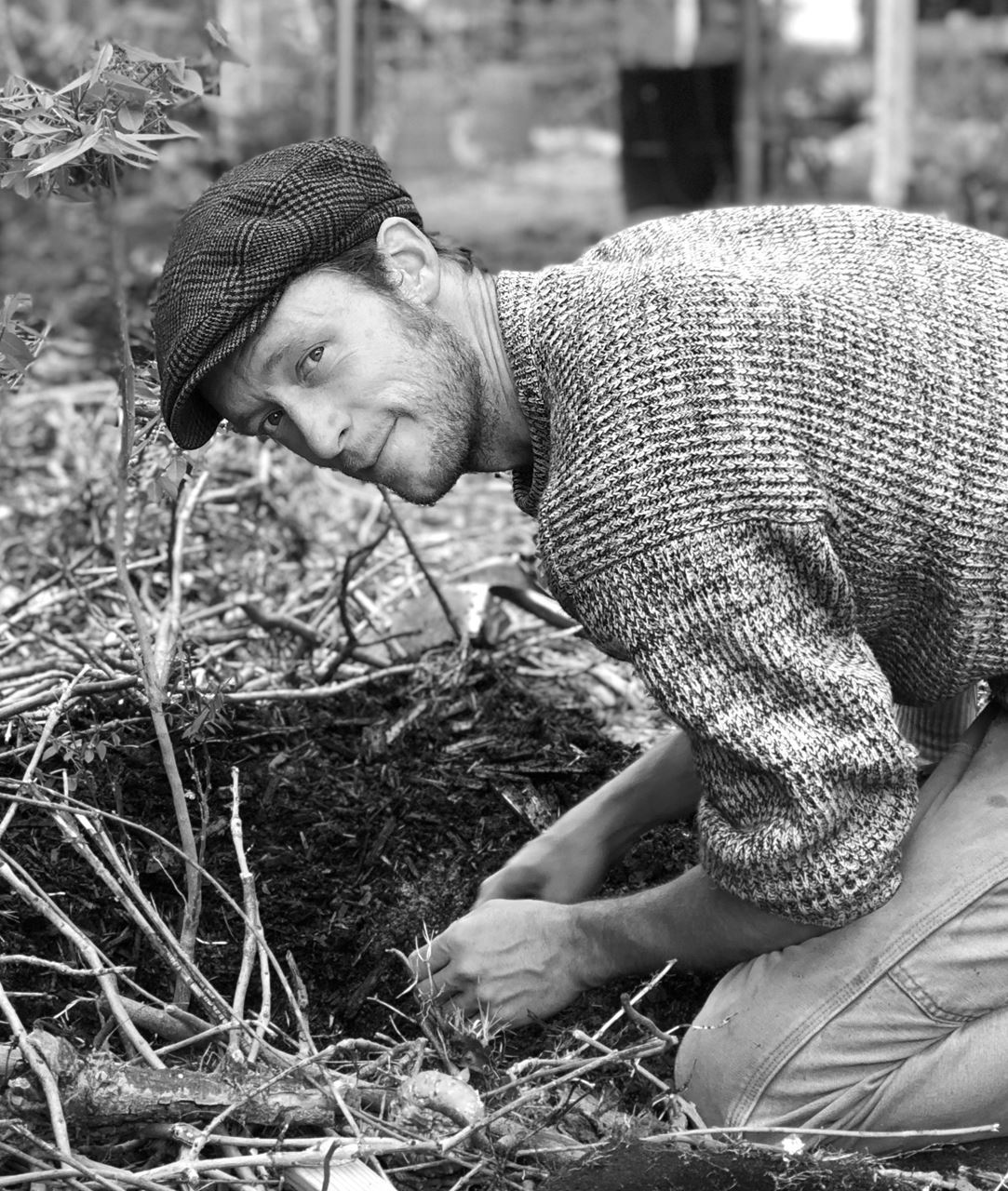

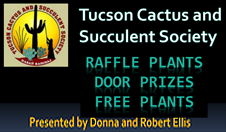
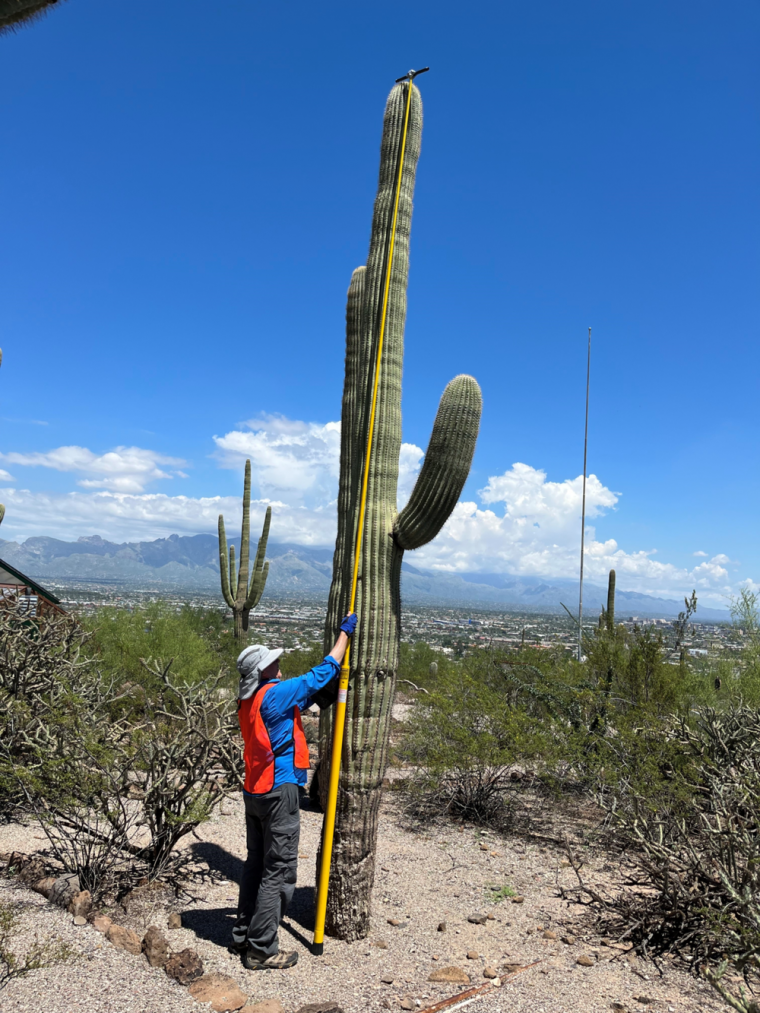 The Baja California peninsula is world famous for astonishing cacti and succulent diversity, as well as unforgettable scenery and remote, sometimes almost inaccessible habitat. Breslin’s first trip to the Baja California peninsula was 33 years ago, only about 12 years after the Transpeninsular Highway was completed. After 24 years of exploration and more than a dozen field trips, Breslin decided to pursue a Ph.D. in the biogeography and evolution of Baja cacti, with an emphasis on the genera Mammillaria and Cochemiea, which constitute a significant portion of the cactus diversity on the peninsula. During his research explorations, he visited and photographed every known taxon in Cactaceae and many succulent species, discovered new populations, revised the genera Mammillaria and Cochemiea, and spent a total of nearly four years in the field, finishing his Ph.D. in 2020. This presentation provides a panoramic, visual and adventurous tour of the rugged and beautiful landscapes and beloved plants of Baja.
The Baja California peninsula is world famous for astonishing cacti and succulent diversity, as well as unforgettable scenery and remote, sometimes almost inaccessible habitat. Breslin’s first trip to the Baja California peninsula was 33 years ago, only about 12 years after the Transpeninsular Highway was completed. After 24 years of exploration and more than a dozen field trips, Breslin decided to pursue a Ph.D. in the biogeography and evolution of Baja cacti, with an emphasis on the genera Mammillaria and Cochemiea, which constitute a significant portion of the cactus diversity on the peninsula. During his research explorations, he visited and photographed every known taxon in Cactaceae and many succulent species, discovered new populations, revised the genera Mammillaria and Cochemiea, and spent a total of nearly four years in the field, finishing his Ph.D. in 2020. This presentation provides a panoramic, visual and adventurous tour of the rugged and beautiful landscapes and beloved plants of Baja.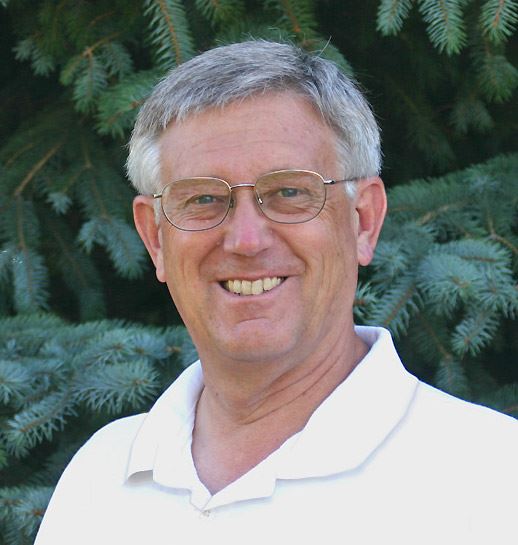
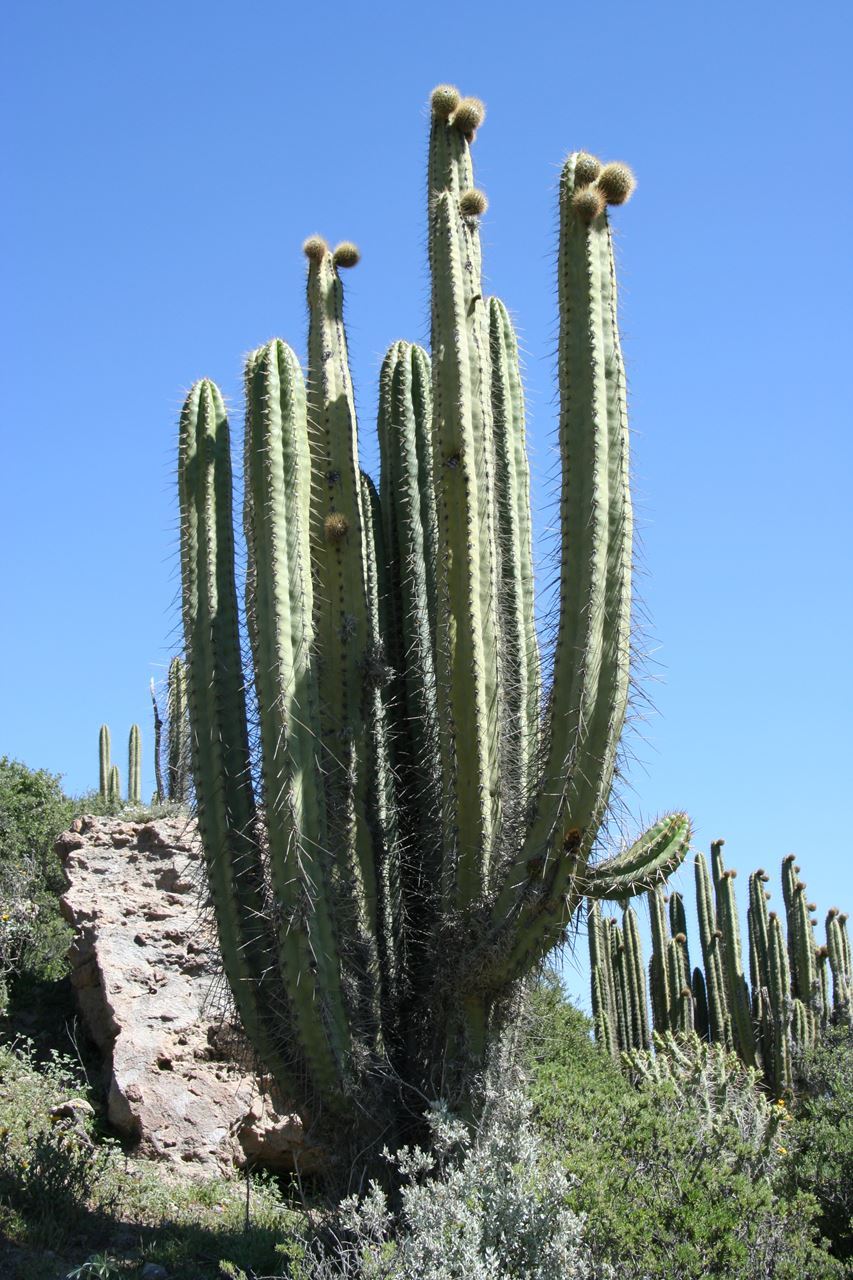

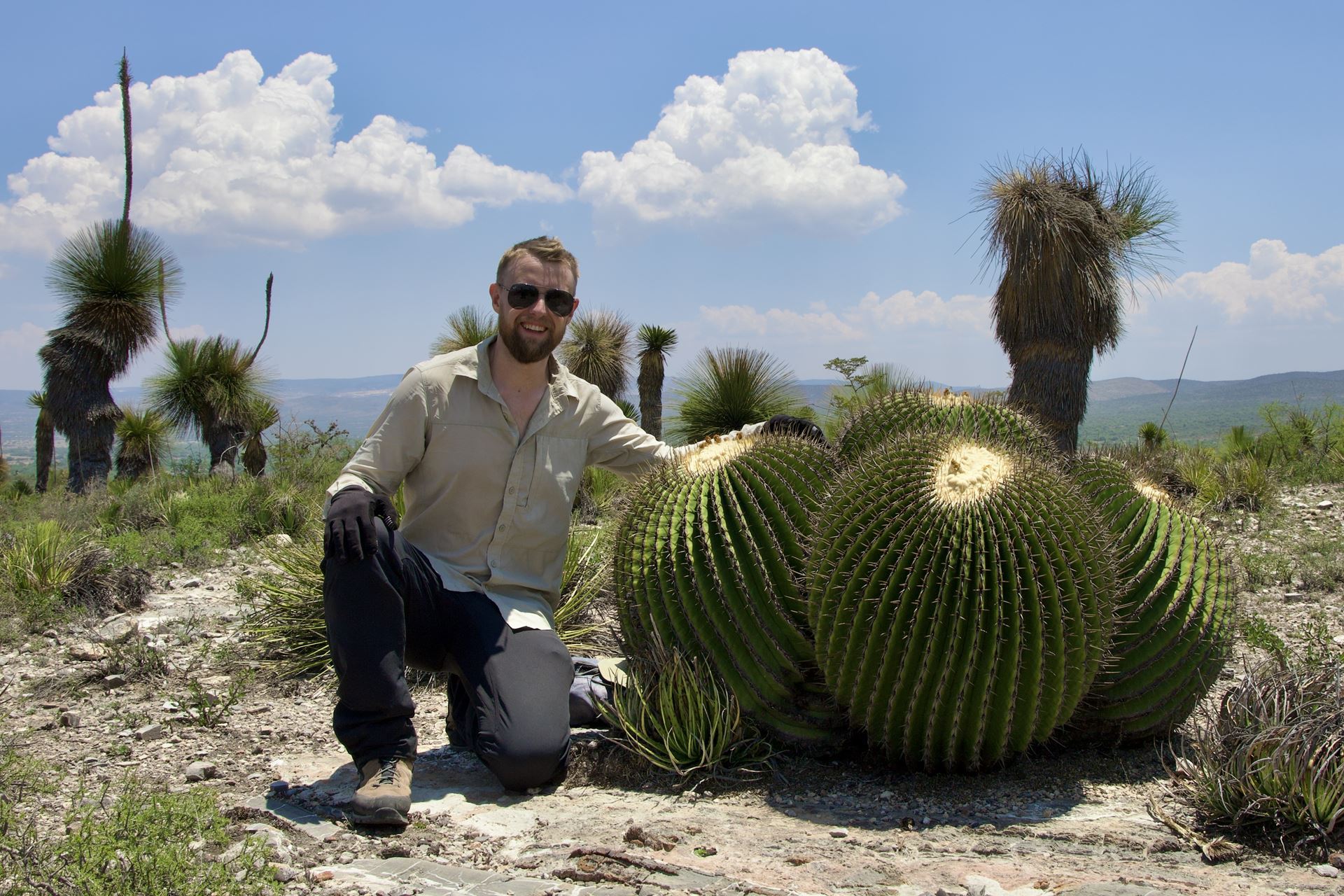
.png)
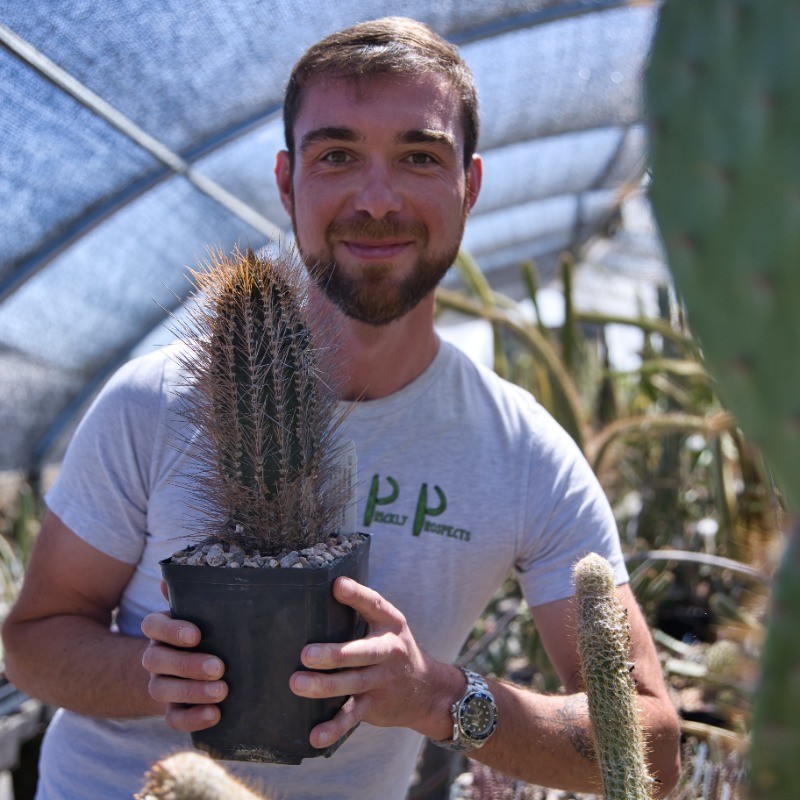
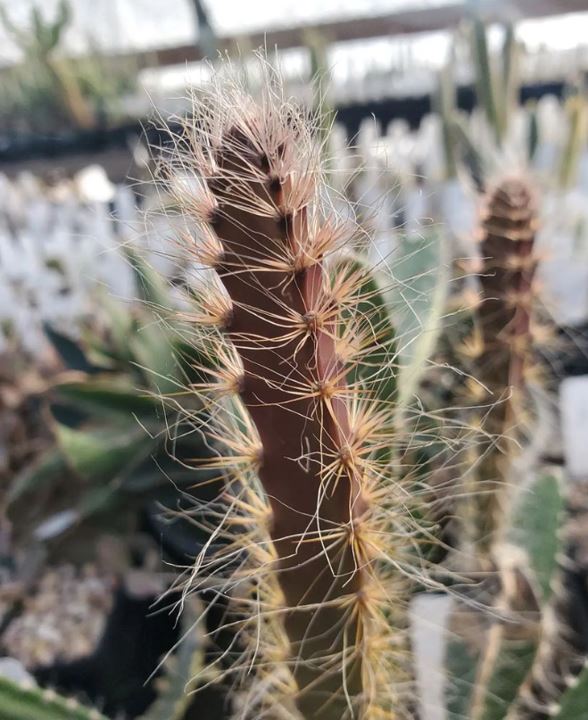
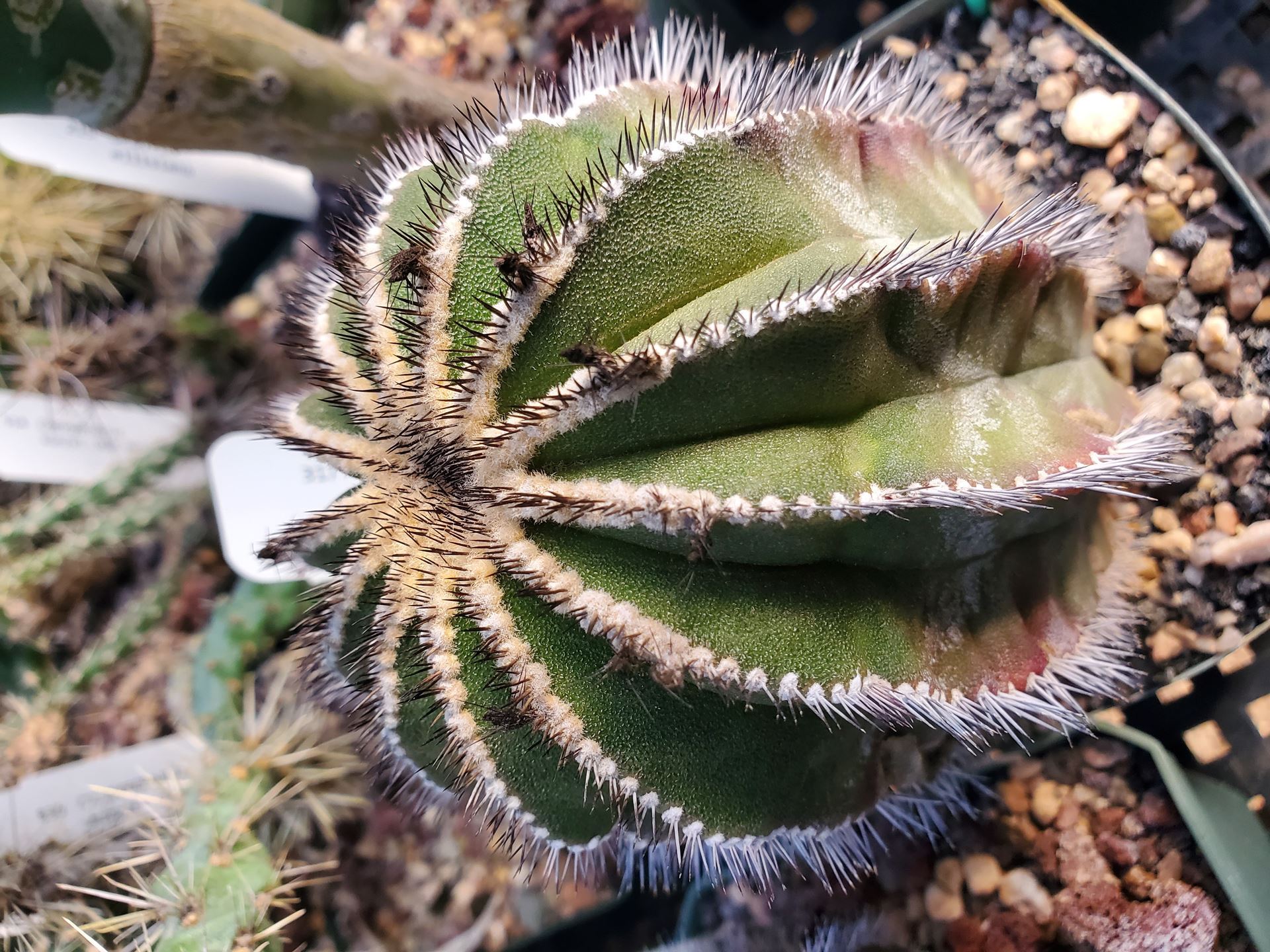
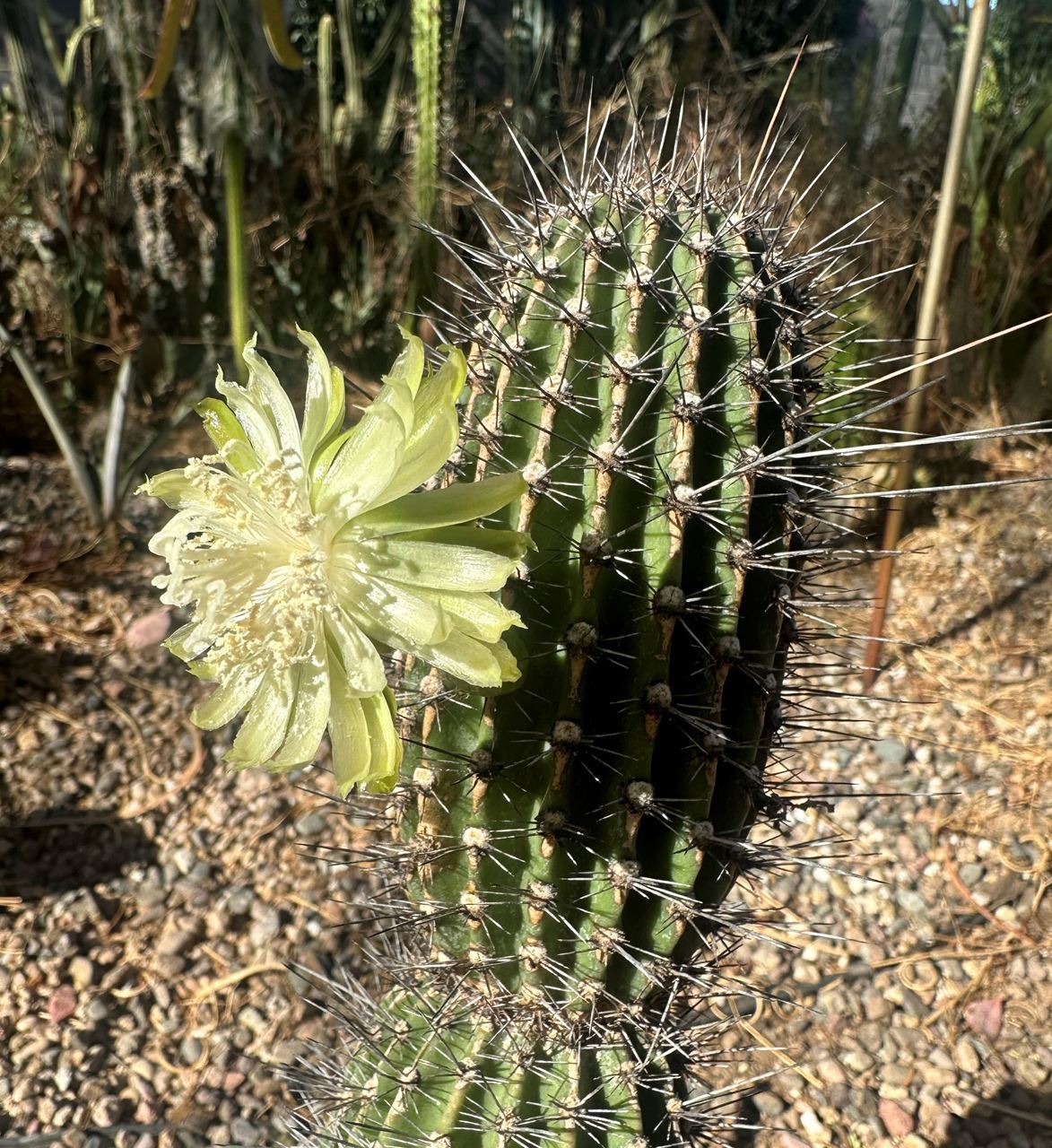
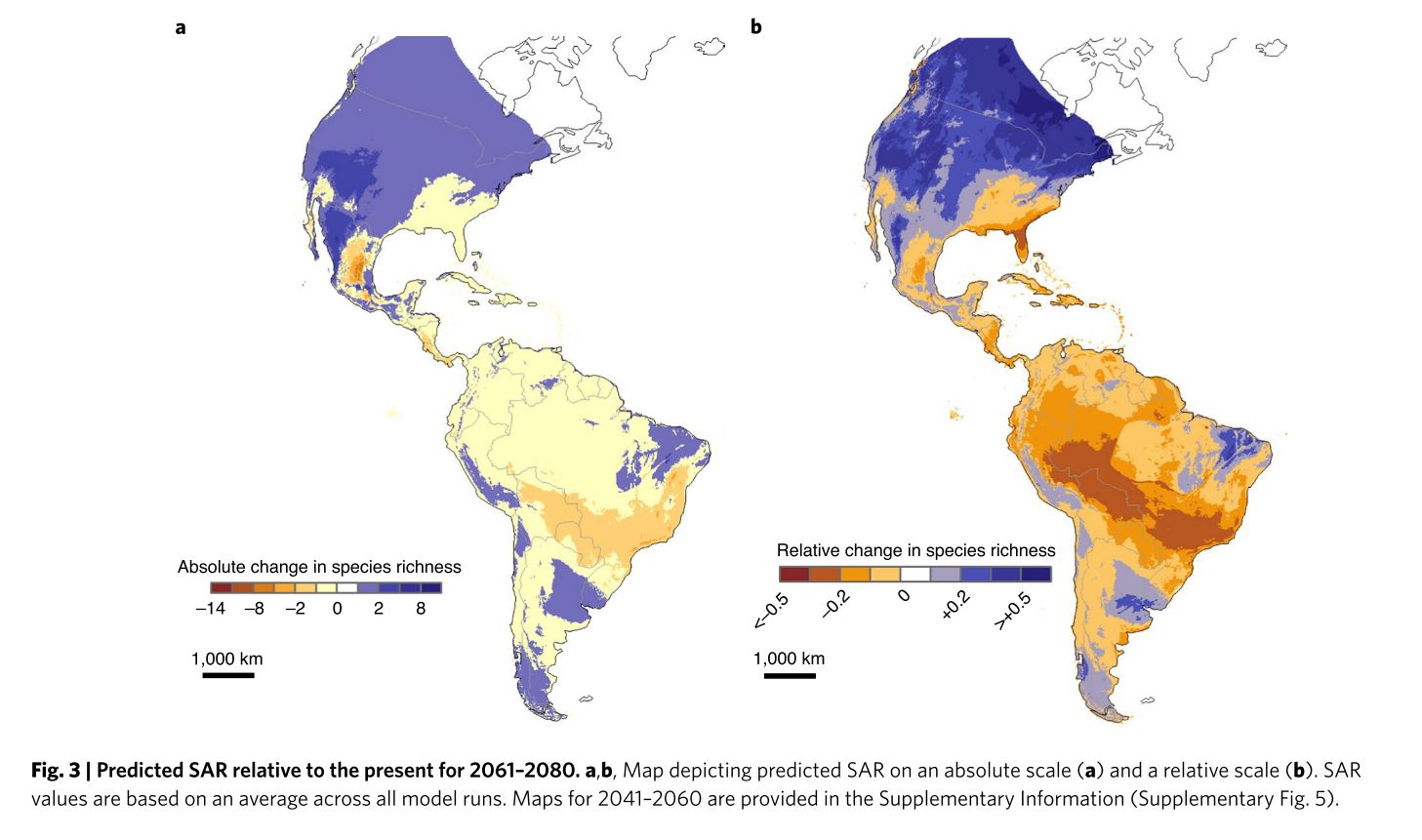
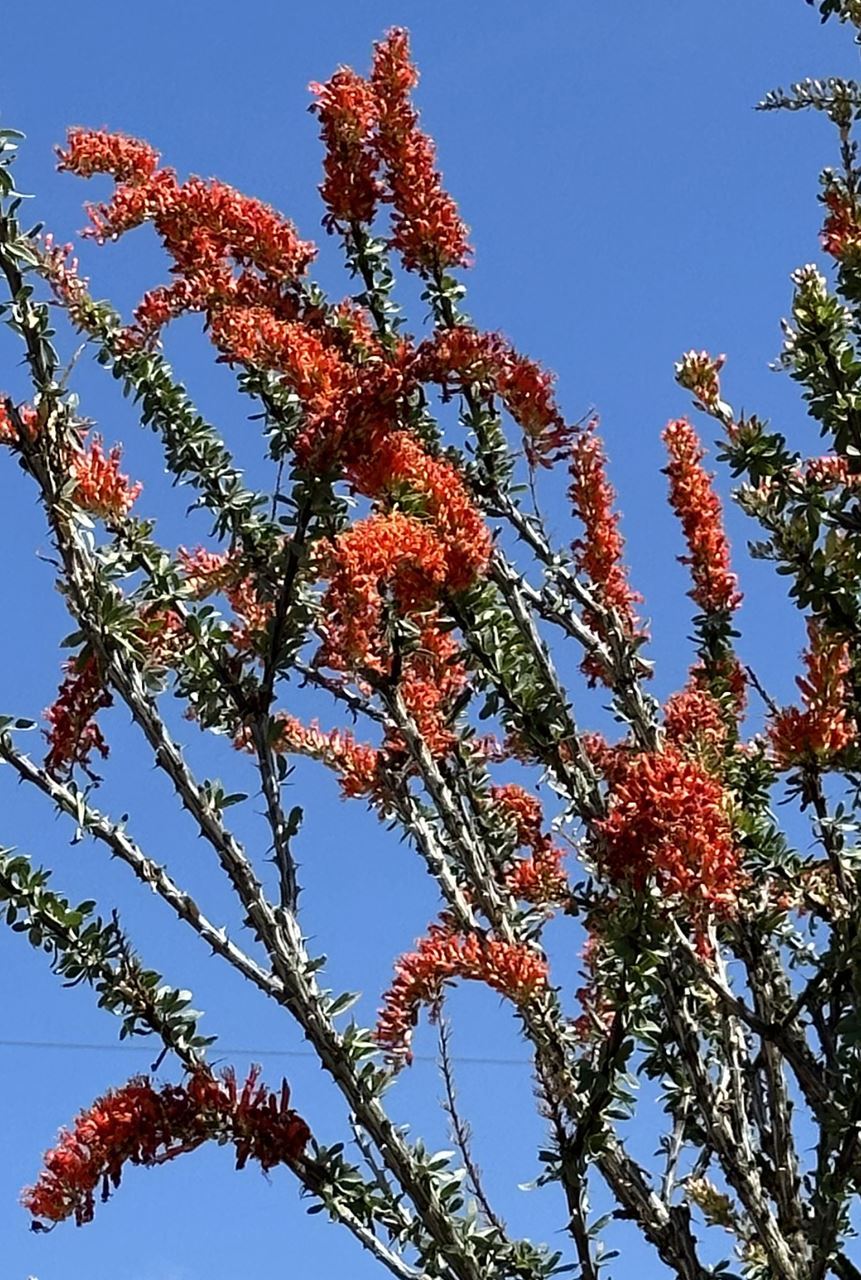

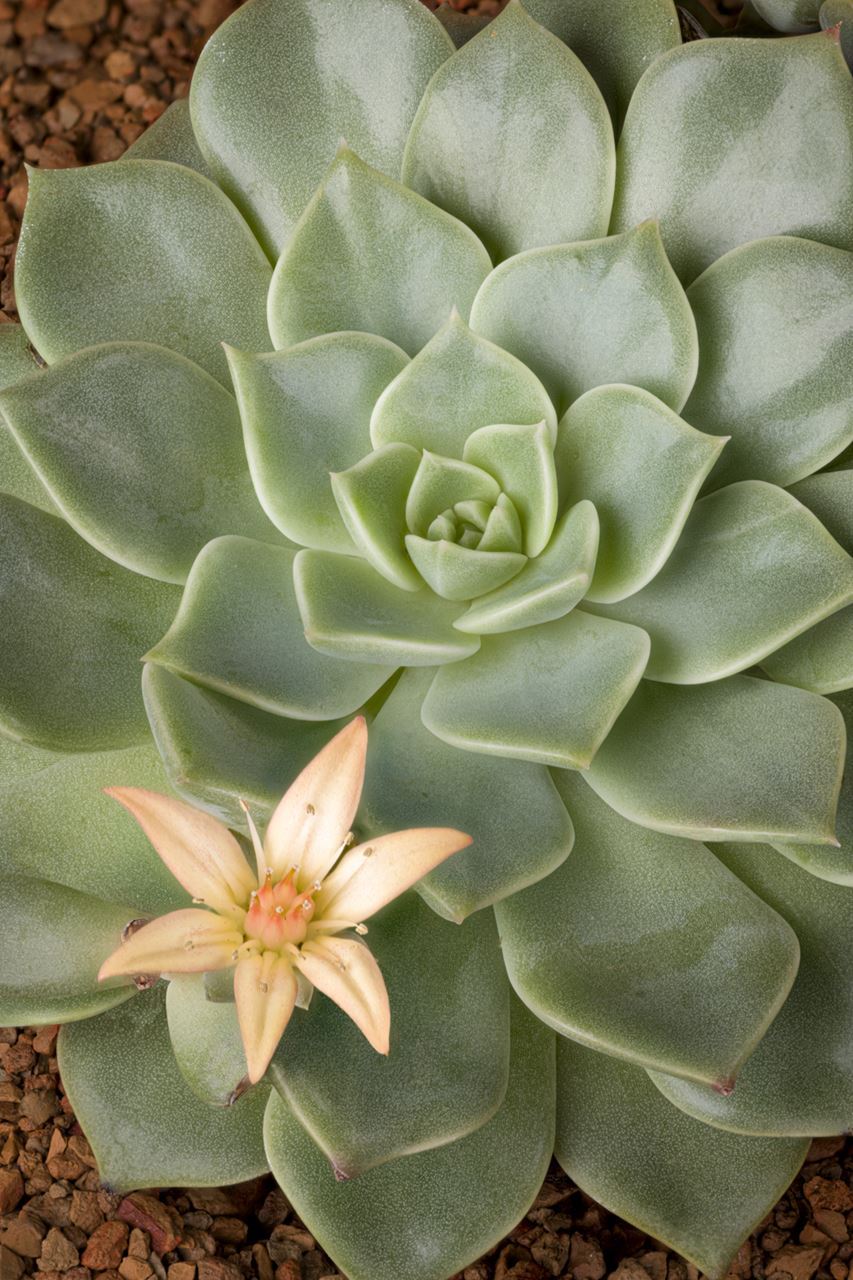
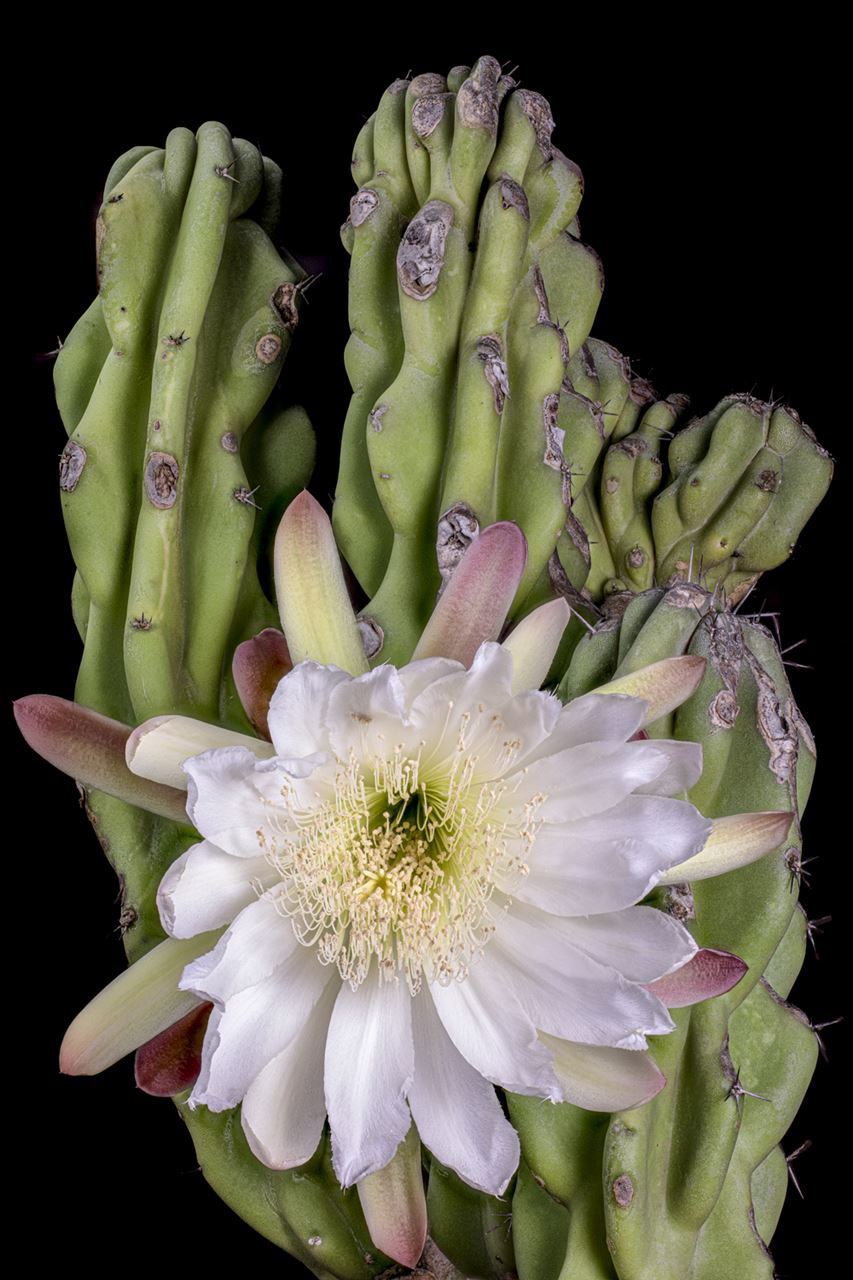
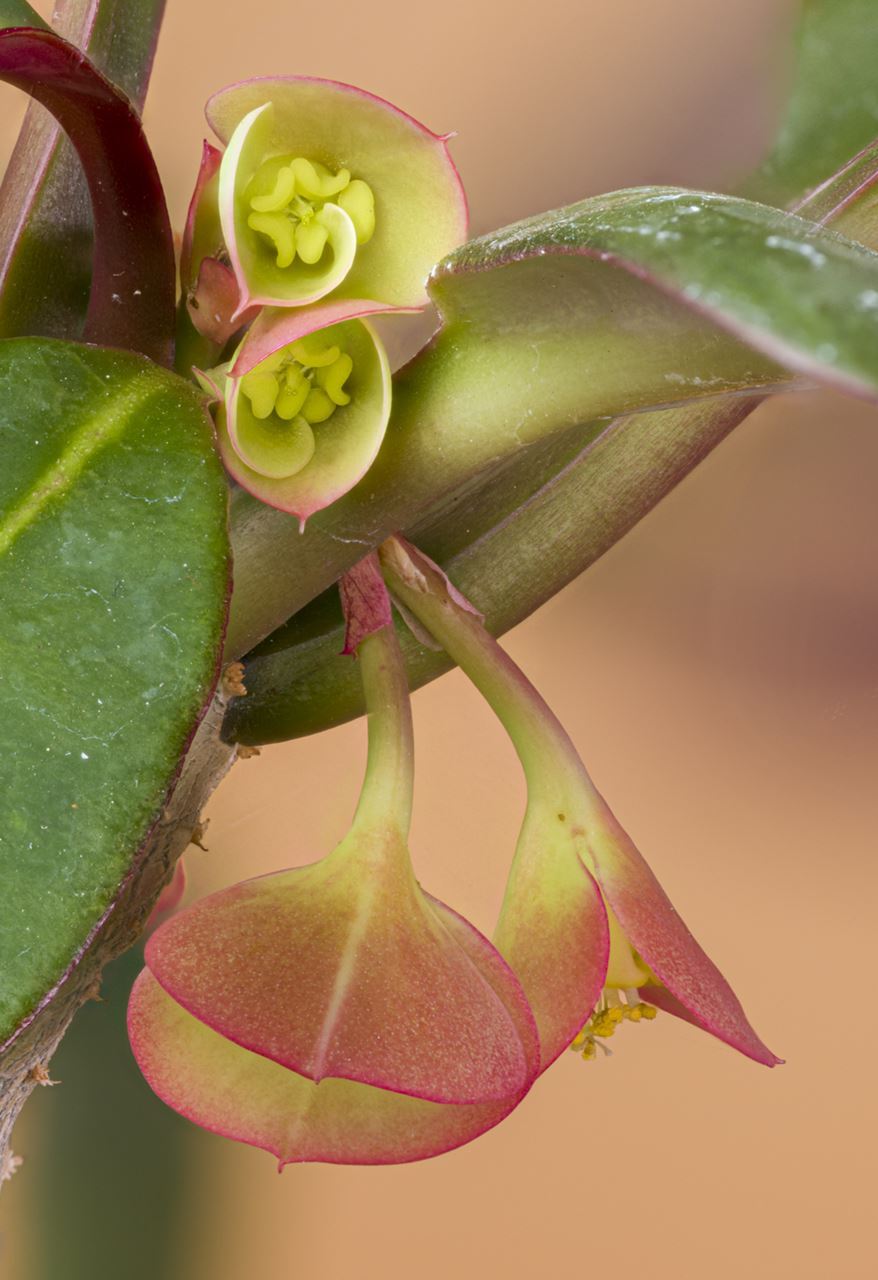
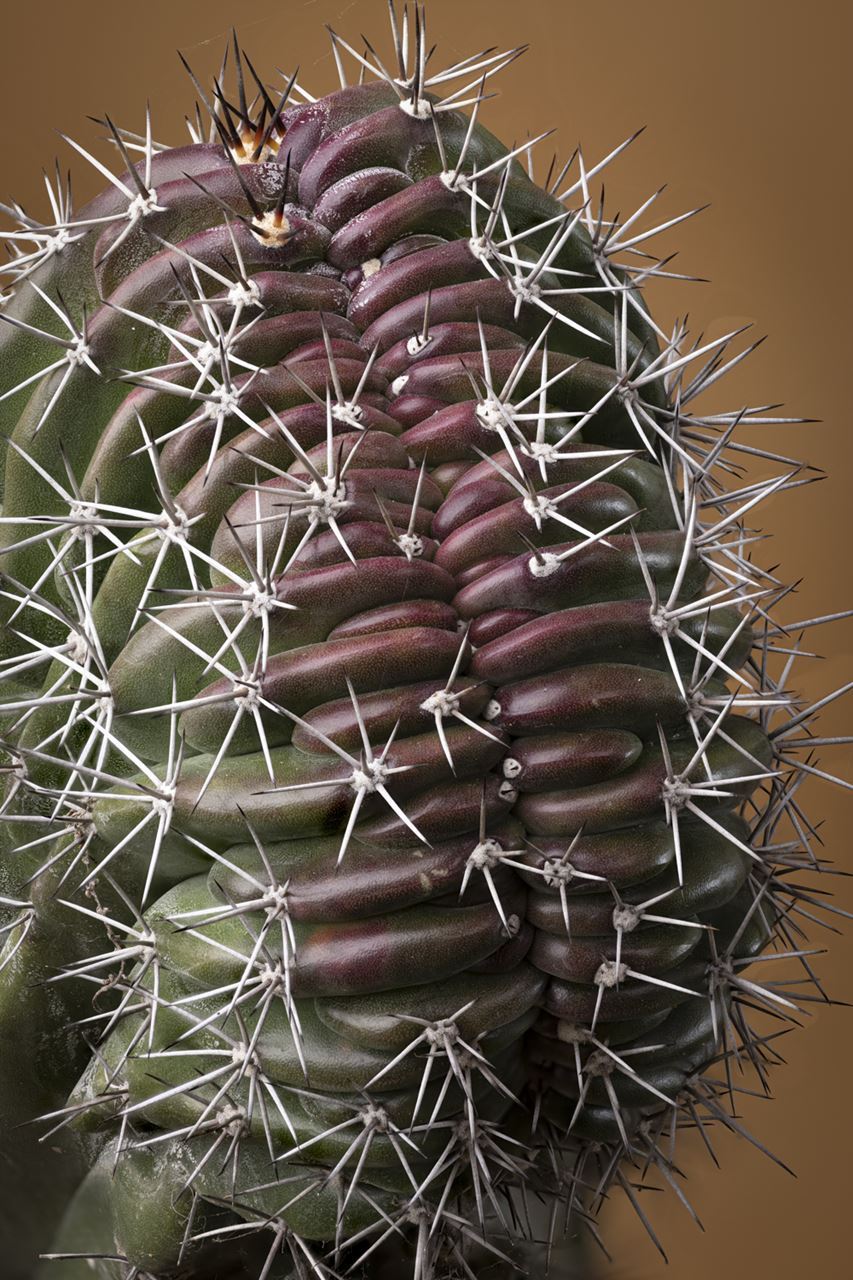
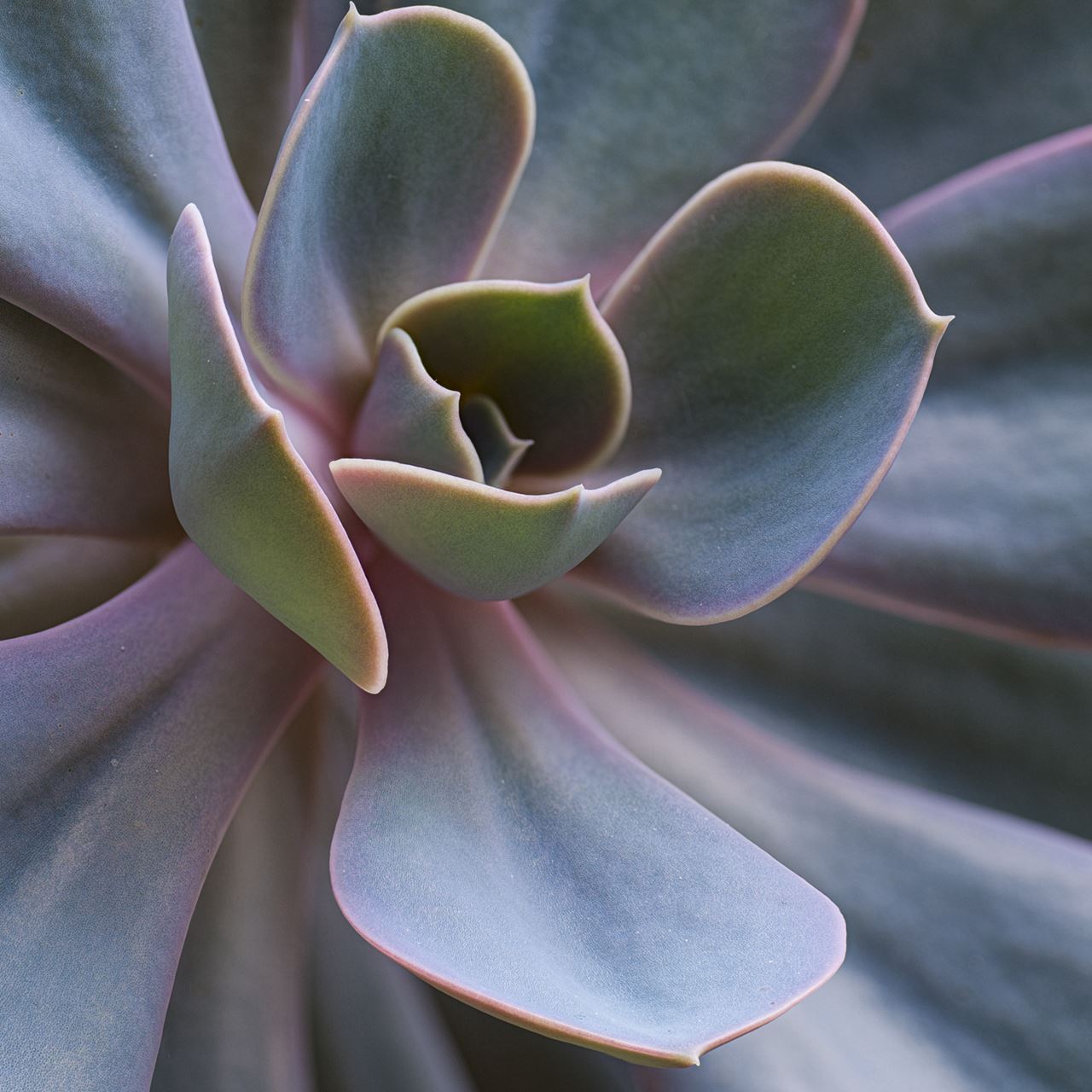
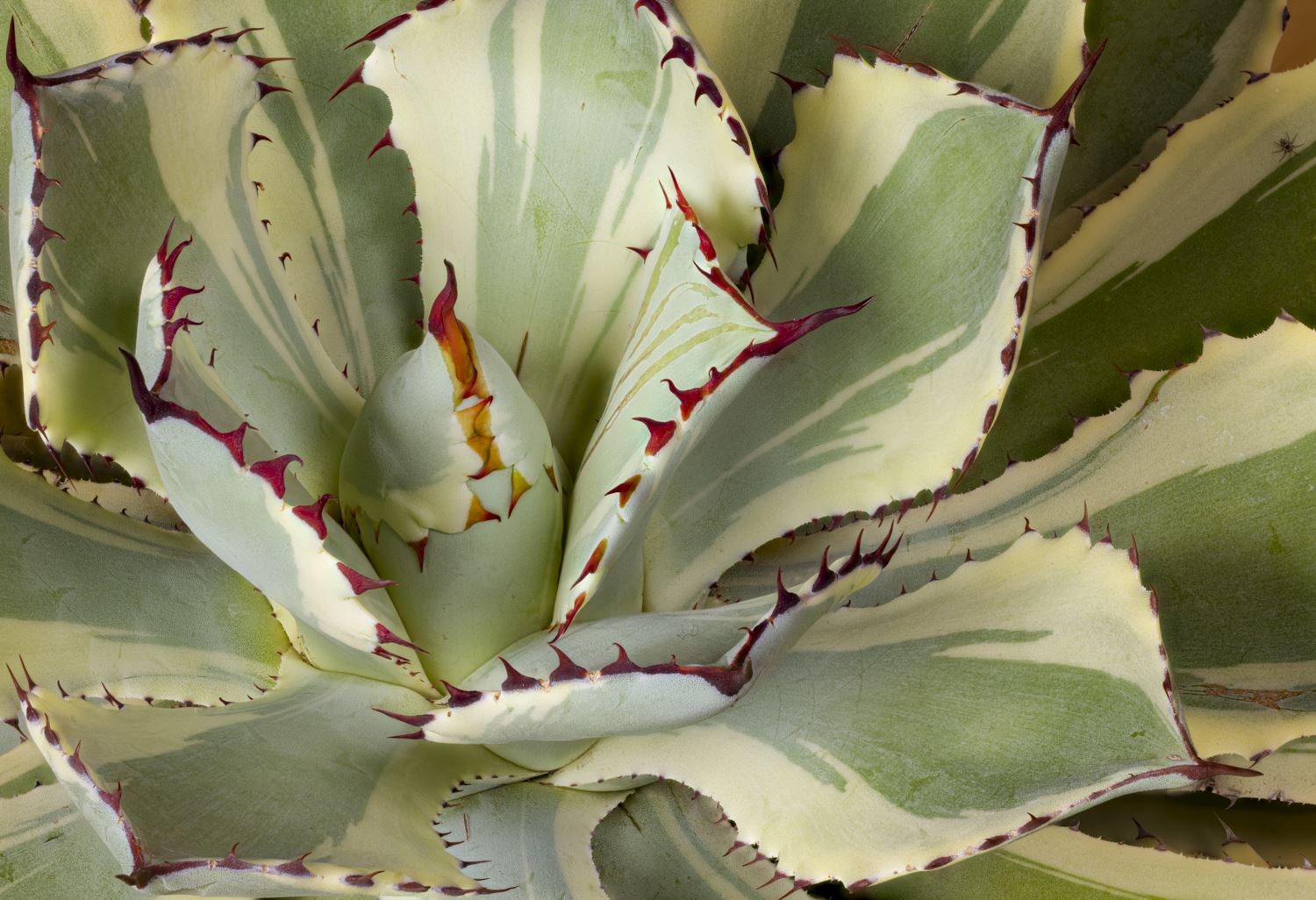
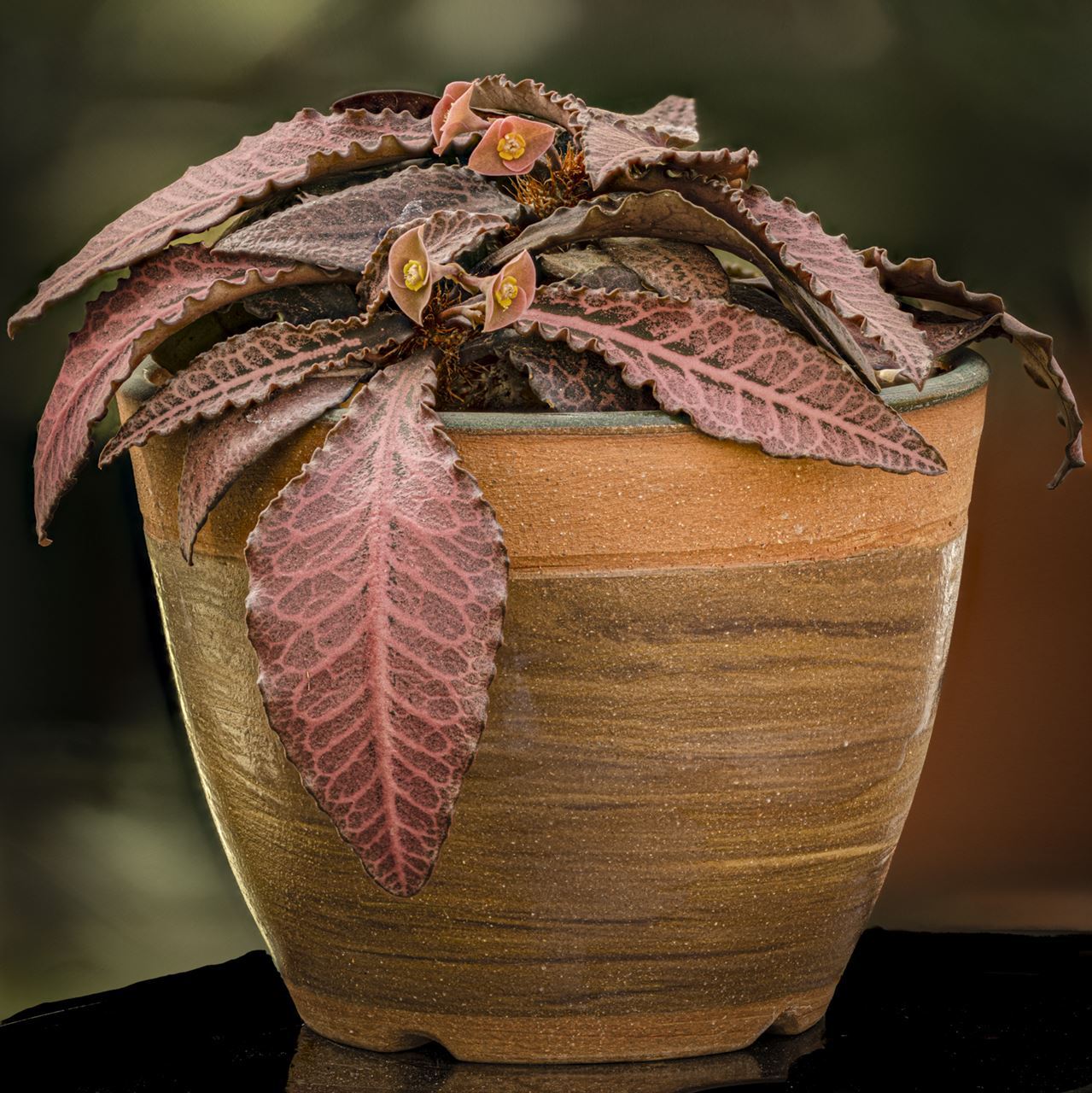
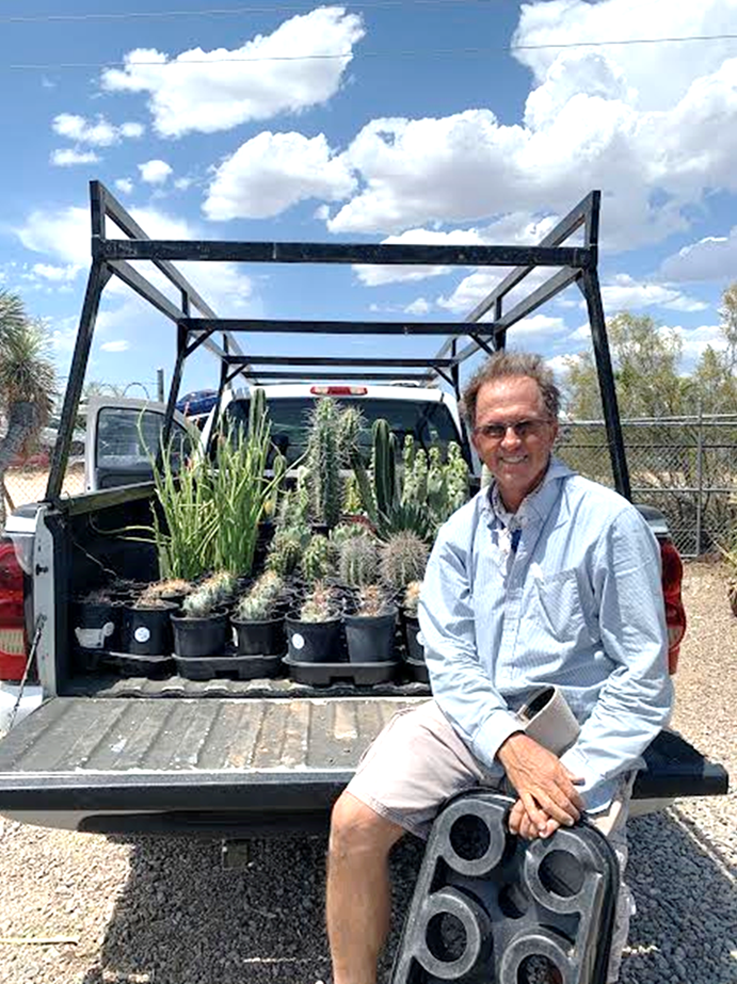
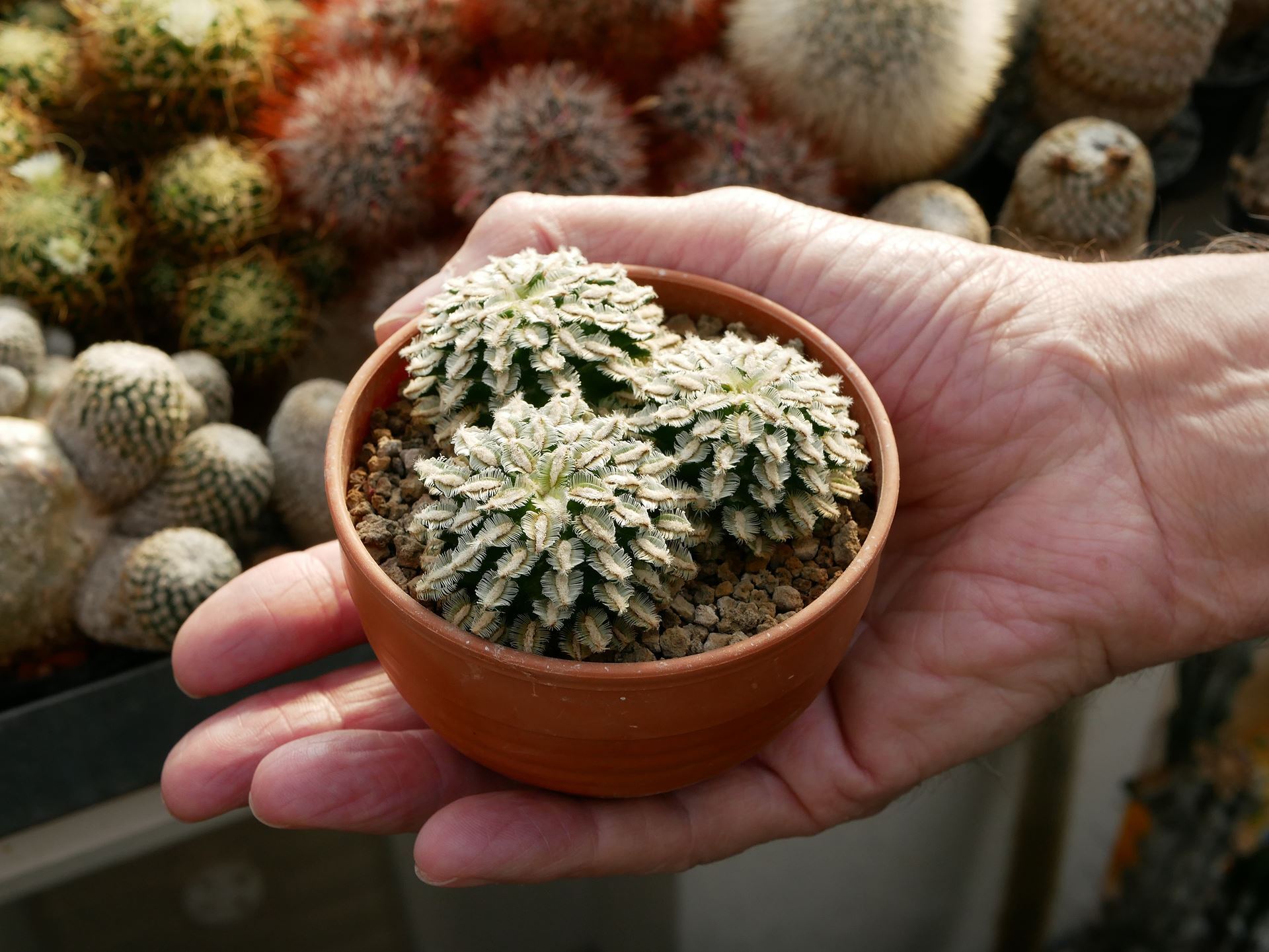 While illegal wildlife trade (IWT) represents a serious threat to biodiversity globally, research into the prevalence of illegal plant collection and trade remain scarce. Cacti and succulents are known as heavily threatened by over-collection for often illegal, international ornamental trade. In my talk I will present data and evidence from a recent study published in Conservation Biology drawing on a large survey conducted in 2021 on the succulent hobbyist collector community, as well as my forthcoming book on illicit cactus and succulent trade based on ethnographic research I have conducted within cactus and succulent collector communities since 2017. Aims of this research included understanding collector perspectives on the Convention on the International Trade in Endangered Species of Wild Flora and Fauna (CITES), the threats IWT poses to cactus and succulent conservation, and how the collector community can better support cactus and succulent conservation efforts worldwide to avoid species extinctions.
While illegal wildlife trade (IWT) represents a serious threat to biodiversity globally, research into the prevalence of illegal plant collection and trade remain scarce. Cacti and succulents are known as heavily threatened by over-collection for often illegal, international ornamental trade. In my talk I will present data and evidence from a recent study published in Conservation Biology drawing on a large survey conducted in 2021 on the succulent hobbyist collector community, as well as my forthcoming book on illicit cactus and succulent trade based on ethnographic research I have conducted within cactus and succulent collector communities since 2017. Aims of this research included understanding collector perspectives on the Convention on the International Trade in Endangered Species of Wild Flora and Fauna (CITES), the threats IWT poses to cactus and succulent conservation, and how the collector community can better support cactus and succulent conservation efforts worldwide to avoid species extinctions.

.png)
